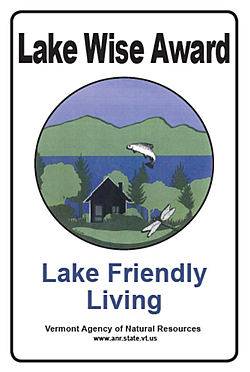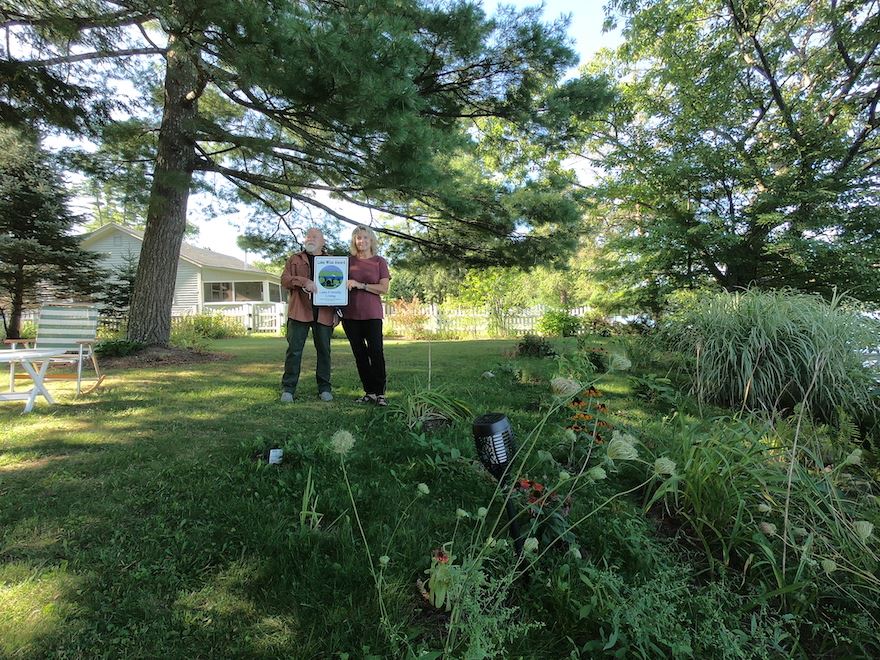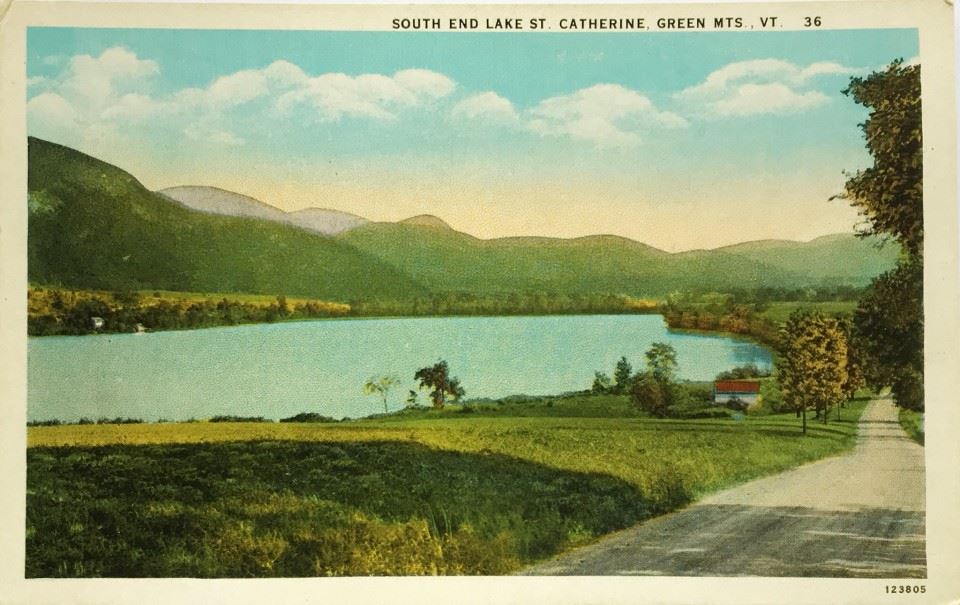Hello to everyone in the Lake St. Catherine community. We have some exciting news to share with you today.
Over the past year, the Lake St. Catherine Association (LSCA) and the Lake St. Catherine Conservation Fund (LSCCF) have been communicating and meeting to discuss the health of Little Lake.
As you may have seen, back on August 25th, we held a joint meeting to discuss potential interventions for Little Lake. You can view a recording of that meeting here. We are happy to report that productive discussions between our two groups continued after this meeting. This culminated in an agreement to work together on projects to help address milfoil and sediment issues in Little Lake.
We’d like to tell you about them, and also let you know how you can help - because we will need your support to make them happen.
During a joint meeting held on October 21st, the LSCCF presented a 3 year, 6 point plan which outlines the tools they will be pursuing for the next 3 years in Little Lake. You can view this on their website.
We presented our 3 year plan to help control milfoil in Little Lake, and our ideas to help with sedimentation issues by initiating projects in the watershed. We also briefly discussed our ambitious plan to begin work on a 10 year Lake St. Catherine Watershed Action Plan (more on this soon).
Finding agreement on both milfoil control and watershed management tools, we’ve agreed to work together on these initiatives beginning in 2021.
Watershed Management
As the lakeshore around Little Lake has been developed over the past 50 years, it has suffered from cultural eutrophication (excess nutrients and sediments from human activity entering the lake). Watershed projects will help mitigate inflows of nutrients (phosphorus), sediments and pollution caused by stormwater runoff. Reducing phosphorus and sediments will limit the amount of nutrients available for weeds to grow, and the amount of muck that settles on the bottom. These watershed projects are designed to keep new nutrients and sediments from entering Little Lake and adding to the existing sediment levels.
 In 2021, the LSCA will again be applying for the Lake Champlain Basin Program’s Pollution Prevention grant. We earned this grant last year and used it to promote the Lake Wise Program on Lake St. Catherine.
In 2021, the LSCA will again be applying for the Lake Champlain Basin Program’s Pollution Prevention grant. We earned this grant last year and used it to promote the Lake Wise Program on Lake St. Catherine.
Lake Wise is a program developed by Vermont’s Lakes and Ponds Program to recognize outstanding efforts by homeowners who live along a lakeshore to protect the water quality and habitat along the shoreline and within the near-shore area of the lake. Four categories are assessed: The driveway and parking area, the structure (which includes roof, drainage, and septic), the recreation area (the lawn/footprint of non-natural, high-use yard areas), and the shoreline buffer area.
The goal of the Lake Wise program, from the Lake Wise website:
"The goal of Lake Wise is to establish a new normal, a new culture of lakeshore landscaping that is proven to help protect the lake. A property that earns the Lake Wise Award will represent a 'model' shoreland property. The Lake Wise Award certifies a property is well managed, using shoreland Best Management Practices, and is maintained to care for the lake."
In 2020, this program resulted in 9 property owners winning 11 Lake Wise Awards for their properties on Lake St. Catherine. This is an outstanding achievement. These properties are models for all of us to follow as we work on making our individual properties lake friendly.

The LSCA worked closely with the Poultney Mettowee Natural Resources Conservation District (PMNRCD) performing property assessments and working with the owners to implement stormwater mitigation measures on their lakeshore. Some of these measures included rain gardens, shoreline buffer plantings, infiltration steps and other water diversion and infiltration techniques.
This year, we’d like to expand the Lake Wise Program into Little Lake. In the grant application we will submit next week, we are happy to be partnering with the LSCCF to help make this program a success in Little Lake. We’ll work together on outreach to Little Lake residents, and the PMNRCD will again perform assessments and work with Little Lake property owners to help them make their property Lake Wise.
While our focus in 2021 will be on Little Lake, we will continue this program lake-wide to help property owners all around Lake St. Catherine to earn this award. It may take a few years to earn this award after your initial assessment as you and the PMNRCD put in the work on your property. This year, we found that properties that were initially assessed in 2018 or 2019 were able to earn the award in 2020 as they and the PMNRCD implemented Lake Wise techniques. So, year-over-year follow up is a key component of this program.
With this in mind, our goal with the Lake Wise program in 2021 is a successful launch in Little Lake, winning at least 10 Lake Wise awards for Lake St. Catherine as a whole and at least our first on Little Lake.
If you would like to work to make your property Lake Wise, please contact us so we can add you to our list for a visit in 2021. We hope to hear from folks all around LSC, but especially on Little Lake! You can email us at info@lakestcatherine.org to get on the list for 2021.
Another important watershed project is underway on Lake St. Catherine. In late 2019, the PMNRCD completed a stormwater master plan for the lake. This study inventoried 50 locations around the lake that were determined to be nutrient and sediment inputs from stormwater runoff. Six of these projects were selected to kick off the program in 2020, and plans were engineered to fix them. Four of the six initial projects are located around Little Lake, and two of these projects will be breaking ground soon. You can read the Stormwater Master Plan here.
Please check out this interactive map of Lake St. Catherine that has both the Stormwater Master Plan locations and the Lake Wise award winners plotted.
Milfoil Control
For the past two years, we’ve been using a new, highly targeted herbicide called ProcellaCOR. It has been highly effective in controlling the milfoil levels in our treatment areas (Big Lake, Lily Pond). It has been so successful that based on preliminary results of our fall survey, next year, we are projecting to not use herbicides in the Big Lake for the first time since 2006. This is an incredible result.
After reviewing the results of the first ProcellaCOR treatment in 2019, we saw a real opportunity to significantly reduce the amount of milfoil in LSC. At that time, we decided to set a goal to get the milfoil level down to a point that our primary control method would be our diver assisted suction harvesting (DASH) team. Learn more about our DASH team by clicking here. Achieving this goal would allow us to redirect funds to other important lake programs like improving water quality, watershed management and invasive species prevention. However, to achieve this goal, we’d need to address the largest source of milfoil in LSC, Little Lake.
Beginning next season, we’ll initiate a 3 year plan using ProcellaCOR to gain control of milfoil in Little Lake. In year one, we’ll treat up to 40% of the milfoil which is approximately 71 acres. The year one treatment has been estimated to cost more than $30,000. If we project out the cost over the 3 year plan, the total cost could be approximately $80,000. However, that is subject to change. After year one, we’ll evaluate the effectiveness of the treatment, and make a plan for year two based on those results. It is possible that we won’t need to treat as large an area in year two or three which would decrease the total cost over the 3 year plan.
While this plan is targeted to help improve the milfoil conditions in Little Lake, it is a benefit to the whole of Lake St. Catherine. Milfoil fragments make their way from Little Lake, through the Channel via wind and boat traffic. We’ve found that this milfoil ends up seeding new milfoil growth in the Channel, near the Sunken Island, Forest House Bay and Halls Bay. Successful treatments in Little Lake would result in the lowest overall milfoil levels in Lake St. Catherine since 2006.
We are happy to have the backing and financial support from the LSCCF for this plan to begin in 2021.
How You Can Help
There are three very important ways you can help to support these plans.
- Donate to the cause. We haven’t yet finalized how we’ll fundraise to help cover the 3 year Little Lake milfoil control plan, but we are going to need your financial support. Soon, we’ll let you know how you can make a contribution to specifically help fund this program over the next 3 years.
- Get involved. Along with your financial support, there is a lot you can do as an individual to support these programs. To help support watershed programs on the lake, learn about best practices for your lakeshore property to limit the nutrients, sediments and pollution that enter the lake. Sign up to have your property to be assessed for Lake Wise in 2021. The LSCA and the PMNRCD will help you create a beautiful, lake-friendly shoreline. To help support the milfoil control program, learn to identify what milfoil looks like and do what you can to get every piece you can find out of the lake. If you see it growing near your dock or swim area, pull it out by the roots and get it out of the lake. If you see a piece or a patch floating by, scoop it out of the lake. If you see some washed up into your shoreline, clear it out. Place it on land to dry out and dispose of it like you would yard waste.
- Become a member. Both the LSCA and the LSCCF rely on membership dues to fund lake management programs each season. As property owners, and as people who love LSC, we need to all contribute to help keep LSC clean and beautiful.
Summary
The LSCA and the LSCCF have agreed to work together on milfoil control and watershed management programs in Little Lake in 2021 and beyond. We’ll be looking to the lake community for your involvement and financial support to make these programs a success.
Lake St. Catherine is one body of water, from Lily Pond to Lake’s End. A healthy Little Lake is a benefit to all LSC property owners, regardless of where your property is. Let’s all work together in support of Little Lake, and in turn, all of Lake St. Catherine.
We’ll have information on our joint fundraising effort soon. We hope you will support these efforts.
Thanks for reading LSC.
We hope you agree that these are significant steps forward for Little Lake.
We welcome your comments. Contact us any time at info@lakestcatherine.org.
Thank you.
